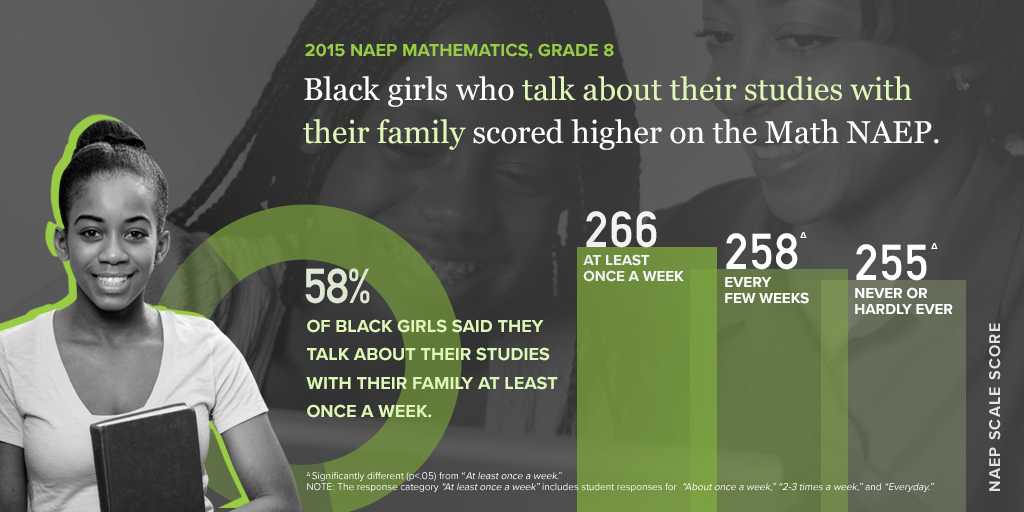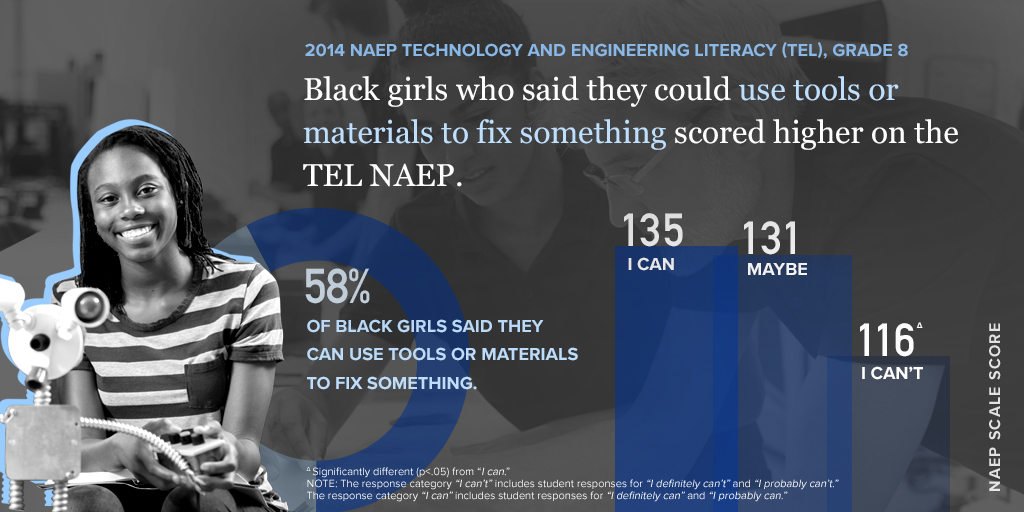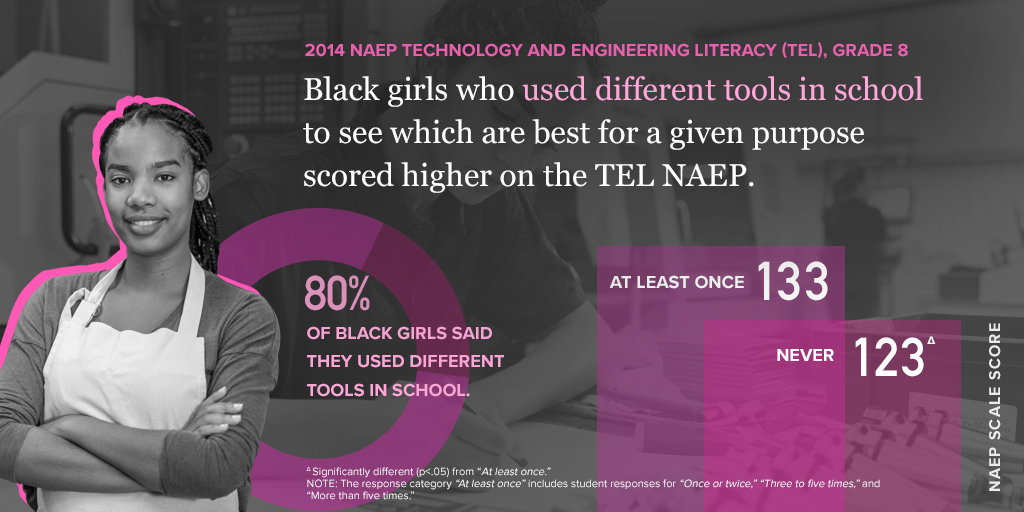
Explore what NAEP contextual data tell us about various factors that relate to learning
NAEP Contextual Variables
Learning doesn’t happen in a vacuum. Numerous factors in students’ daily lives affect how they learn — from their classes at school, to their activities outside of school, to their interactions with their families at home.
NAEP gathers data from students, teachers, and schools about these factors that relate to learning. The Governing Board is committed to continuously improving the content, analysis, and reporting of these contextual variables to provide insights — for education policy and practice — on the experiences, activities, and attitudes associated with higher achievement.
Learn more about NAEP’s contextual variables, and examine the Governing Board’s research designed to tap the critical value of these data.
NAEP Contextual Variables: Highlights
- Eighth-graders who participate in hands-on activities or investigations in science class daily, as reported by their teachers, scored 12 points higher on the 2015 NAEP in science than students who never or hardly ever do.
- Eighth-graders who had taken a music class scored an average of 12 points higher on the 2016 NAEP Arts Assessment than students who had not taken music.
- School administrators for about a third of the eighth-graders who took the 2014 NAEP Technology and Engineering Literacy Assessment reported that their schools lack time to provide instruction in technology or engineering due to curriculum content demands.



